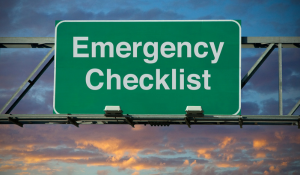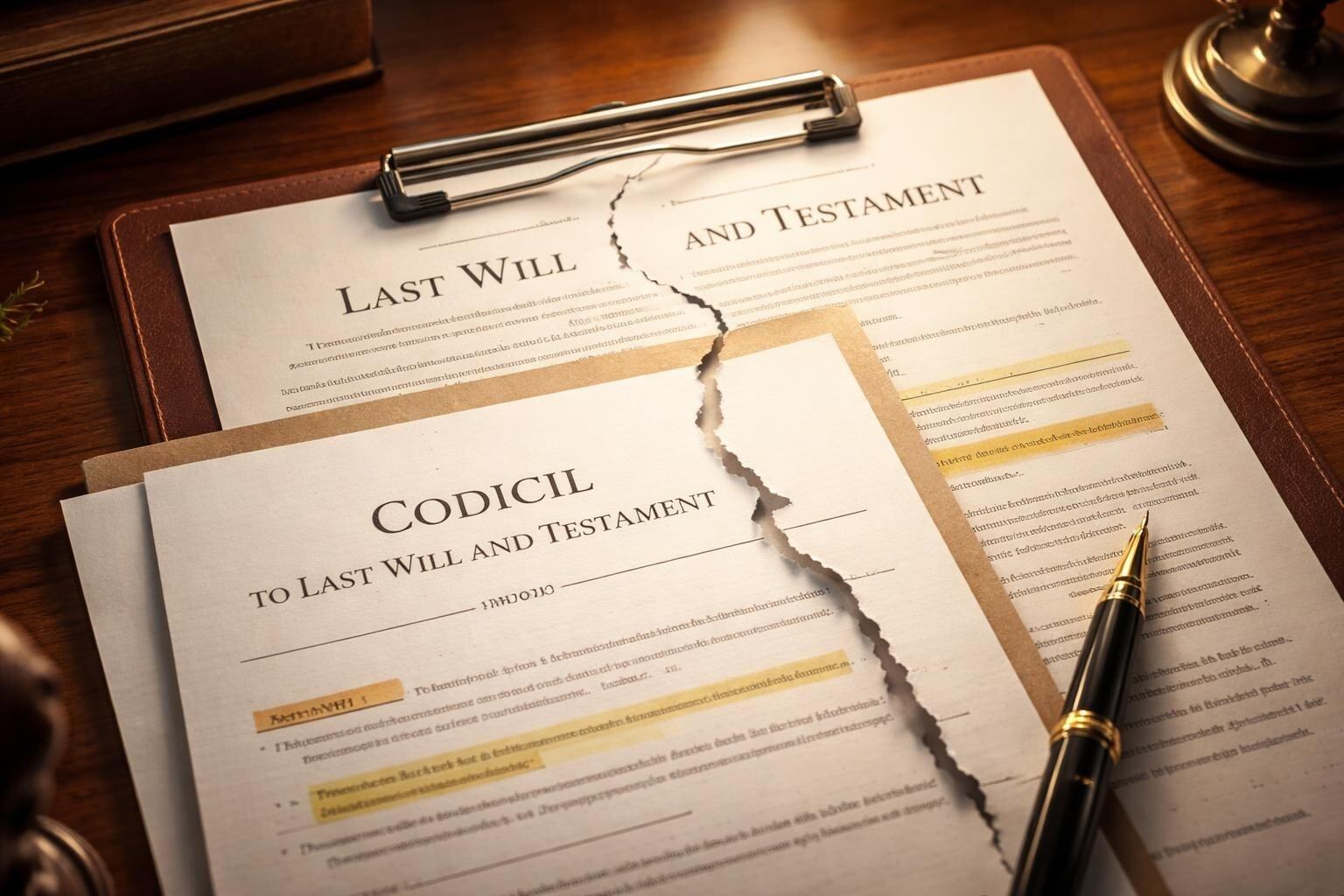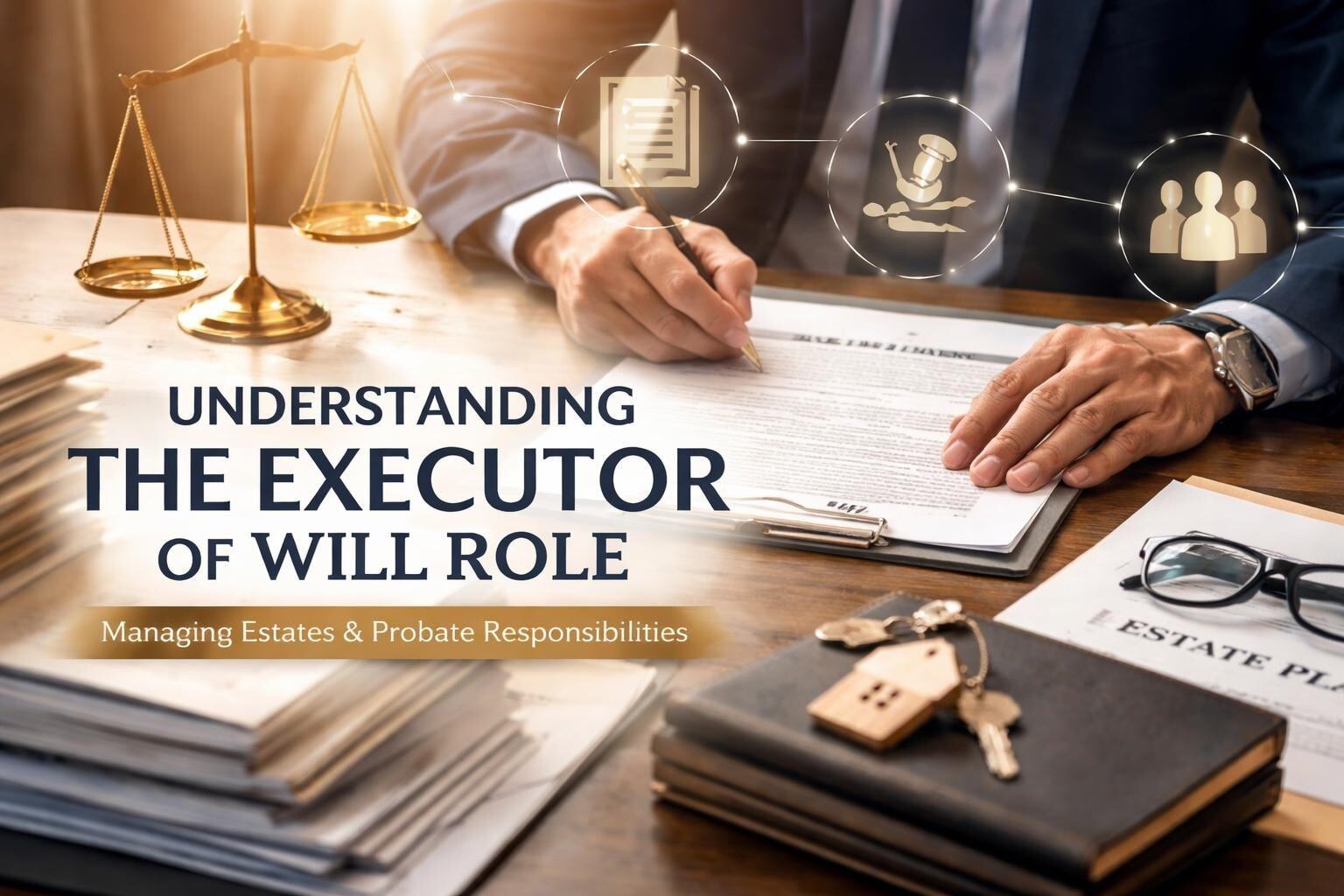Emergency Planning Checklist: Be Prepared for Anything
In the present uncertain world, being prepared for emergencies isn't just a matter of choice but a necessity.
In a world filled with uncertainties, it's essential to be prepared for the unexpected. Whether it's a natural disaster, a medical emergency, or any unforeseen event, having an emergency plan in place can make all the difference. At Ironclad Family, we understand the importance of being ready for anything. This emergency planning checklist will help you and your family stay safe and organized when faced with unexpected situations.
From natural disasters to sudden emergencies, having a well-thought-out emergency plan can be the difference between security and chaos. This article offers a complete guide to creating an emergency planning checklist to ensure you're ready for any situation that might happen.
-
Assessing Your Emergency Supply Needs
Before getting into the details of emergency plans, evaluating your supplies needs is essential. Knowing what you and your family need during an emergency will set the basis for a project that will be successful. Begin by calculating how much water, food, and other essential supplies your family will require to survive for at least 72 hours. Consider factors such as the number of members in your family, food or medical requirements, and your area's climate. This assessment will assist you in creating an emergency supplies list tailored to your specific requirements and needs.
-
Involving All Family Members
Your emergency supply should be a collaborative affair. It is essential to include everyone in your family to participate. Everyone should be aware of their roles and responsibilities in an emergency. Have a family meeting and discuss the plans, ensuring everyone knows their role. Then, assign tasks based on the individual's capabilities and age. For instance, children could be in charge of their personal "go-bags" with comfort items and a toy they like, while adults are responsible for communication and first aid. By having everyone involved, you ensure your family is prepared and can work together during moments of emergency.
-
Assembling a Comprehensive First Aid Kit
A fully stocked first aid kit is essential to preparedness for emergencies. Ensure that your first aid kit is well-stocked and includes adhesive gauze, sterile, antiseptic wipes and scissors, tweezers, pain relievers, and any prescription medications you require. Check and replenish the first aid kit to ensure its effectiveness. Also, take a basic first aid and CPR course to prepare yourself better to assist in the event of injury in an emergency.
-
Securing Important Documents
Personal documents of yours are valuable. Learn how to protect in times of emergency so that you can quickly access vital information at any time. Essential documents include birth certificates and insurance policies, passports, and financial records in waterproof and fireproof boxes. Scanning and saving digital copies of these documents can give you an additional layer of security. Keep these documents in an accessible, secure area, and ensure family members know where to find them. This will speed up the recovery process and help prevent the loss of important information during an emergency.
-
Creating Personal Emergency Kits
Emergency kits for your home go far beyond first aid. This section explains what should be included in these kits, including clothing, hygiene products, and comfort items for kids. Your emergency kits must contain essentials such as non-perishable foods, water, flashlights, water and batteries, a multi-tool and clothing suitable for the season, personal hygiene items, and any essential toys for kids, like blankets or toys. Make these kits according to your family's requirements, and keep them updated regularly to ensure they are effective. The availability of these kits can be a source of comfort and ease in times of emergency, especially if you need to leave your home.
-
Food and Water Supplies
In times of emergency, access to fresh water and nutritious food is crucial. This article will discuss keeping and rotating emergency water and food items. Ensure you have a good supply of non-perishable foods and clean drinking water to feed your family. Keep canned products such as dried fruits, nuts, and other durable foods. Recycle these items frequently to avoid spoilage. For water, keep at least one gallon per person daily for at least three days. Also, consider methods for purifying your water, like tablets or a portable water purifier, if your water supply is compromised.
-
Communication Plan
Communication is essential during emergencies. This section will explain why it's crucial to have a communication plan that is in place and the best way to make contact with loved family members. Make a communication plan with designated meeting places, an emergency contact for out-of-town residents, and an inventory of essential numbers. Ensure each family member can communicate via two-way radios, cell phones, or walkie-talkies. Test your communication devices and ensure everyone knows how to use them. A well-organized and organized communication plan can help keep your family in touch and stay informed during chaotic moments.
-
Evacuation Planning
Sometimes, the most secure alternative is to flee. Learn how to develop an evacuation plan that includes shelter and transportation options. Create an evacuation plan that provides for escape ways to your house, transport options, and possible covers for emergencies. Give the responsibilities to family members, for example, who will load the car or take essential items to speed up the evacuation procedure. Keep yourself informed of evacuation instructions in your area and road conditions. If you have a well-planned evacuation plan, you can quickly and safely leave a hazardous situation in case of a need.
-
Financial Preparedness
Emergencies can be a burden on your budget. Learn ways to plan your financial future to be prepared for the storm. Make sure you've got an emergency fund to pay for unexpected expenses. Protect essential financial documents, like bank account information and wills, securely. Check your insurance policy to ensure it is sufficient for your needs in an emergency supply, whether it's health insurance, home insurance, or specific disaster coverage. Planning and understanding financial issues during emergencies can ease stress during stressful times.
-
Community Resources and Support
Many people face crises. Your local community is a great resource. Discover how to draw on the community's support when needed. Contact your neighbors or attend local emergency response teams and participate in community-wide preparation events. A strong network can give you access to information, resources, and support from fellow community members during difficult times. Collaboration with your community can significantly impact your capacity to deal with crises and recover efficiently.
-
Emergency Communications Planning
Effective communication can be lifesaving in times of emergency. This article will discuss establishing robust contact with family members and the authorities. Consider using multiple communication channels, including text messages or social media platforms, and notifications for emergencies to be up-to-date and receive news from official sources. Make sure that all families know about these options and have access to essential tools, including cell phones and chargers.
-
Staying Informed Through Technology
Technology is a game changer in keeping you informed during times of crisis. Learn how to make the most of it. Stay up-to-date with Ironclad Family on national and local disasters by alert systems for emergencies. Use news apps, weather apps, and social media websites to get real-time updates about the latest developments. Ensure your devices are fully charged, and consider purchasing portable chargers to remain connected in the event of power failures.
-
Backup Power and Communication Devices
In the absence power in the absence of power, battery backups, and communications devices become essential. Explore your options and learn from the Ironclad Family. B backed-up power sources, such as solar chargers or portable generators, are a great way to keep your devices running. Also, consider investing in hand-crank or battery-powered radios to get information and news. Test and maintain them regularly to ensure that they are working when they are most needed.
-
Community Communication Networks
Your community is an excellent source of information. Find out how to connect to community networks and stay informed about local happenings. Join or create community communication networks, like Facebook groups, email chains, or other social media platforms, to communicate information and assist neighbors. This is especially beneficial for sharing updates, coordinating aid, and keeping in touch with local resources during times of need.
Conclusion
In the end, preparation is essential to deal with emergencies successfully. From assessing the needs of your supplies to establishing a solid communication system and connections with your community, this comprehensive emergency planning checklist will help you be prepared for any challenge that might occur. By following this emergency planning checklist, you can enhance your family's safety and preparedness during unexpected events. Ironclad Family is dedicated to helping you and your loved ones stay secure and ready for anything.
Frequently Asked Questions (FAQs)
-
What's the significance of evaluating water and food requirements?
Assessing your water and food requirements is essential because it helps ensure you have enough food and water to provide for your family in an emergency. It can prevent shortages and keep everyone healthy and hydrated.
-
How can I protect important documents during times of need?
Vital documents must be kept in a fireproof and waterproof container. Consider scanning and saving digital copies, too. Keep these documents in a secure place that is accessible.
-
What are the items I should include in my emergency kit?
Emergency kits for personal use should contain clothing, non-perishable food items, water, and batteries, a flashlight, first-aid kits such as hygiene products, multi-tool medicines, and any other specific items required for family members, like baby items or pet necessities.
-
What financial plans should I put in place for a time of need?
Financial preparations could include having an emergency fund, crucial financial documents, and insurance coverage recognition. These steps can help reduce the financial burden in an emergency.
-
How can I work with my friends and family for mutual assistance?
Collaboration with your community can mean connecting with neighbors, joining local groups for emergency response, and participating in community preparedness activities. Mutual support can offer support and resources during difficult times.

Michael Lester
I spent years flying Marine Corps combat missions believing I understood America’s role in the world. Today I work in national security and cybersecurity, helping organizations understand risk, resilience, and the systems we rely on. My writing continues the same mission—bringing clarity to complex issues and inviting people to look past slogans so we can understand who we are, what we do in the world, and why it matters.



